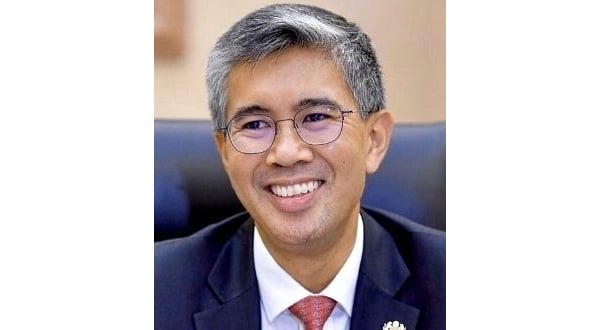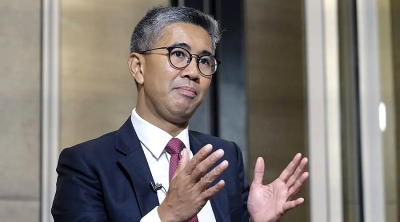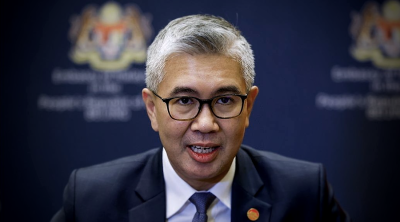
As the world enters the third year of the COVID-19 crisis, economic developments have been both encouraging and concerning, because despite encouraging growth in 2021, the global economy is expected to slow down due to new COVID-19 variants, rising inflation, debt and income inequality.
As pent-up demand subsides and world governments withdraw fiscal support, the IMF and World Bank predict that global growth will moderate from 5.9 – 5.5% in 2021, to 4.4 – 4.1% in 2022.
Based on recent positive economic indicators, Malaysia’s projected growth is still between 5.5 to 6.5%, which will be driven by an expansionary Budget 2022.
This is also partly due to how the Government has repeatedly stepped up and spared no expense when it comes to assisting the nation during difficult times.
Overall, the government has implemented various assistance and stimulus packages amounting to RM530 billion to help the rakyat and businesses, particularly the B40 and micro, small, and medium enterprises (MSMEs). Separately, I have also had the honor of presenting the country’s annual Budget for the past two consecutive years, with an allocation of RM322.5 billion in 2021, and RM332.1 billion in 2022.
However, just as the country was about to end 2021 on a more optimistic note, with infection numbers stabilizing and our economy gradually recovering, we were hit by worse-than-usual year-end floods, necessitating an additional RM2-billion in flood relief.
With all the COVID-19 and recent flood challenges, the time has come to rebuild our resources.
But what should we do next? Perhaps we should begin by asking one simple question: what kind of Malaysia do we want our children and grandchildren to inherit?
If we truly care about their future, we must construct policies that will enable Malaysians to become prosperous, rather than paupers; to become initiated, rather than inhibited; and to become empowered, rather than entitled. We also want them to enjoy, rather than flee from our natural environment because of climate-change-related disasters.
To present our children with a Utopian rather than a Dystopian future, we must ensure fiscal sustainability, so they can inherit a country free of crippling national debts. In short, the nation’s fiscal sustainability is critical to the success of our rebuilding and reform initiatives.
While the MOF has done its best to be responsible by ensuring that budget allocations are spent wisely, subsidies are targeted, borrowings are done responsibly, and development expenditure is not drastically reduced, it has become increasingly difficult to balance revenue against the huge but necessary expenditure incurred over the last two years to support both the economy and the vulnerable in our society.
And what if another pandemic struck before we can replenish the public coffers and the National Trust Fund (KWAN)? Can we keep our public healthcare system from breaking down? Can we protect the livelihoods of the rakyat and businesses should there be another economic closure? How can we support the B40 and MSMEs without a sizable reserve?
Clearly, we require a more sustainable solution to rebuild the nation’s coffers, including KWAN, where more than RM5 billion was spent to purchase COVID-19 vaccines.
As we enter the Year of the Tiger, there is much to learn from this Chinese zodiac animal. Tigers are ferocious, fearless, and courageous. Policy-wise, we must embrace the strength and boldness of this revered beast for the sake of our children, and our beloved nation’s long-term socioeconomic well-being.
This is why the MOF has begun fiscal reform initiatives such as developing the Medium-Term Revenue Strategy (MTRS) and the Fiscal Responsibility Act (FRA) to create the much-needed fiscal space.
The importance of these reforms cannot be overstated to reverse the debilitating socioeconomic impact of COVID-19; while also addressing decades-old structural issues that the pandemic has clearly exacerbated.
The MTRS’s main features include clearly defined revenue targets and a more equitable and transparent tax system, powered by data analytics and better alignment with global best practices.
More importantly, we must balance all these efforts with prudent borrowing and spending. Based on the Medium-Term Fiscal Framework and improving economic data, we target to reduce our budget deficit to 3.5 – 3.0% by end-2025, through two critical aspects: debt and revenue.
On the former, we must avoid a situation where a growing portion of our revenue is used to service our debt i.e., paying interest. Also, the more we borrow, the more our children will have to pay in future.
On the latter, the FRA, which we intend to implement this year, is critical to MOF’s strategy to improve fiscal governance, accountability and transparency. This includes conducting a Public Expenditure Review to ensure that public funds are spent more effectively; as well as implementing ongoing governance and institutional reforms, all of which will contribute to a sustainable balanced budget, as well as prudent debt and fiscal risk management.
Last September, the MOF issued a consultation paper on the FRA, which received widespread support. To me, this represents a general acknowledgment that if efforts to improve fiscal governance are not implemented quickly, we may face the harsh reality of a funding shortage sooner rather than later.
In terms of transparency, the MOF has consistently kept the public informed about how many rakyat and businesses have benefited from previous assistance packages and annual budgets through the MOF’s weekly report, which has reached 85 issues since April 2020.
This year, we are doing more by establishing the Budget 2022 Monitoring Committee, which will be chaired by Prime Minister Datuk Seri Ismail Sabri Yaakob himself. This demonstrates the Government’s commitment to ensure the successful implementation of Budget 2022 initiatives.
After what Malaysia has been through, we need solid fiscal reforms to properly develop the economy and benefit all of Keluarga Malaysia. And, just as a tigress would defend her cubs from marauding predators in the woods, we must gather the same courage to implement fiscal reforms. We can only continue protecting our children and grandchildren from future financial ruin if we act sooner rather than later, based on what is right and responsible.
(Tengku Zafrul bin Tengku Abdul Aziz is the Minister of Finance, Malaysia.)
ADVERTISEMENT
ADVERTISEMENT






































